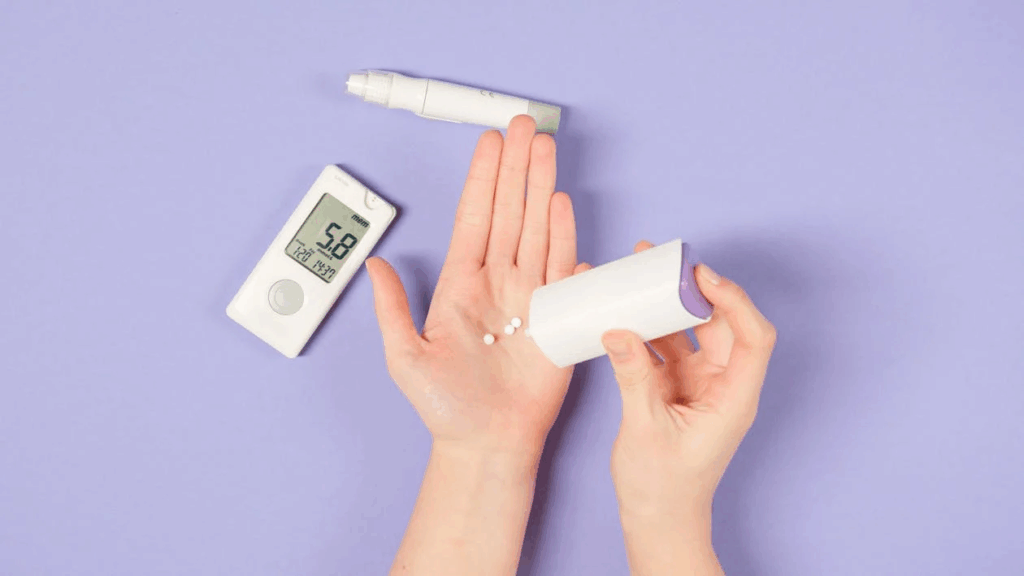Dementia refers to a class of neurodegenerative illnesses that adversely affect cognitive abilities such as focus, memory, reasoning and personality. It leads to cognitive decline in affected individuals. Dementia risk is becoming increasingly common. The WHO estimates that those affected by dementia-related illnesses will triple from 50 million to 152 million by the year 2025. In 2024 alone, the Lancet Commission published two new modifiable risks for developing dementia: untreated vision loss and high LDL cholesterol.
Moreover, dementia is no longer just associated with old age, is has multiple risk factors. Risk factors may accumulate over decades before any symptoms are present. However, there are ongoing efforts and strategies that have been developed and new ways to combat modifiable risks of dementia. While some require a concerted effort and big lifestyle changes, others are easy and simple to apply. There is an ever-growing list of methods to lower dementia risk, and scientists have discovered 4 new ways to lower dementia risk.
1. Keeping LDL cholesterol low

LDL cholesterol or “bad” cholesterol plays a pivotal role in neurodegeneration. As the brain is full of lipids, and LDL is a type of lipoprotein, excessive amounts of LDL cholesterol causes plaque buildup in the arteries. This subsequently reduces blood flow to the brain, leading to cognitive decline and ultimately increases risk of developing dementia.
According to a study, those whose LDL cholesterol levels were below 70 mg/dL had a 28% reduction of risk for developing Alzheimer’s specifically. This compares to individuals who have LDL levels of 130 mg/dL or higher. Regular activity helps maintain LDL cholesterol levels and lowers dementia risk by 30%. Statins, a class of medications used to lower LDL cholesterol levels, have anti-inflammatory properties which reduces plaque build up in the brain, lowering dementia risk.
2. Getting Quality Sleep

Getting enough of the right kind of sleep has long been known to lower the risk of dementia, especially Alzheimer’s disease. Recent research highlights that it’s not just the number of hours you spend asleep, but the quality and type of sleep you get that matters most. Deep sleep (slow-wave sleep) and REM sleep are two critical phases that play distinct roles in protecting brain health. During deep sleep, the brain clears out toxins and waste products, including amyloid proteins linked to Alzheimer’s, while REM sleep is pivotal for processing emotions and consolidating memories.
A 2025 study from Yale found that adults in midlife who spent less time in deep and REM sleep had smaller volumes in the inferior parietal lobule, a brain region that is among the first to deteriorate in Alzheimer’s disease. This suggests that insufficient time in these sleep stages may accelerate brain atrophy and raise dementia risk years before symptoms appear. Long-term studies further show that people in their 50s and 60s who regularly get less than six hours of sleep per night are up to 30% more likely to develop dementia later in life.
To lower the risk of dementia, aim for regular sleep patterns and prioritize sleep quality by creating a restful environment and practicing relaxation techniques. Monitoring how refreshed you feel upon waking and tracking your sleep with smart devices can help ensure you’re getting enough deep and REM sleep.
3. Diabetes Medication

For individuals over 50 with type 2 diabetes, certain diabetes medications are showing promise as a new way to lower the risk of dementia. Recent studies and meta-analyses show that GLP-1 receptor agonists (GLP-1Ras) significantly reduce the risk of developing dementia. GLP-1 receptor agonists (GLP-1Ras) are a class of medications such as Ozempic.
One review and meta-analysis involving more than 160,000 participants found that GLP-1Ras were associated with a 45% lower risk of dementia compared to other glucose-lowering therapies, which did not show the same benefit. Another study following over 88,000 older adults with type 2 diabetes for up to 10 years found that those taking GLP-1 agonists had a 30% lower risk of developing dementia compared to those on sulfonylureas, and a 23% lower risk compared to those on DPP-4 inhibitors.
SGLT2 inhibitors (SGLT2i), another class of diabetes drugs, have also demonstrated neuroprotective effects. Multiple studies show that using SGLT2 inhibitors (SGLT2i) lowers the risk of dementia by 21–22% and significantly reduces the risk of Alzheimer’s and vascular dementia in people with type 2 diabetes.
These findings suggest that, beyond their benefits for blood sugar and heart health, GLP-1Ras and SGLT2i may help protect the brain. Two randomized controlled trials, called EVOKE and EVOKE Plus are currently underway and researchers project the studies will conclude in October 2026. For now, these medications offer hope for reducing dementia risk in older adults with diabetes, and may inform discussions between patients and their doctors about the best treatment choices.
4. Light and Easy Physical Activity

Opting for easier, low-intensity exercise may be just as effective in lowering dementia risk as more demanding workouts. Recent findings from the EXERT study demonstrated that both low-intensity activities, such as stretching and balance, and moderate to high-intensity aerobic workouts helped stabilize cognitive function over 12 months.
The EXERT study is the largest clinical trial of exercise in adults with mild cognitive impairment. Participants in both groups experienced significantly less cognitive decline and reduced brain volume loss, particularly in the prefrontal cortex, compared to individuals who did not participate in structured exercise programs.
The research suggests that regular, accessible and easy physical activity can provide meaningful protection against cognitive decline for those at high risk of dementia. Experts believe that consistency is key. Engaging in exercise three to four times per week for about 30-45 minutes, regardless of intensity, can help lower the risk of dementia.
Conclusion

Dementia remains a challenge globally, with the number of affected individuals projected to triple by 2050. As research advances, evidence highlights practical, accessible approaches to lowering dementia risk. This includes prioritizing quality sleep, managing cardiometabolic health with medications when appropriate, and engaging in regular, even low-intensity physical activity.
Read More: 10 Brain-Boosting Superfoods That May Help Support Memory and Reduce Dementia Risk

